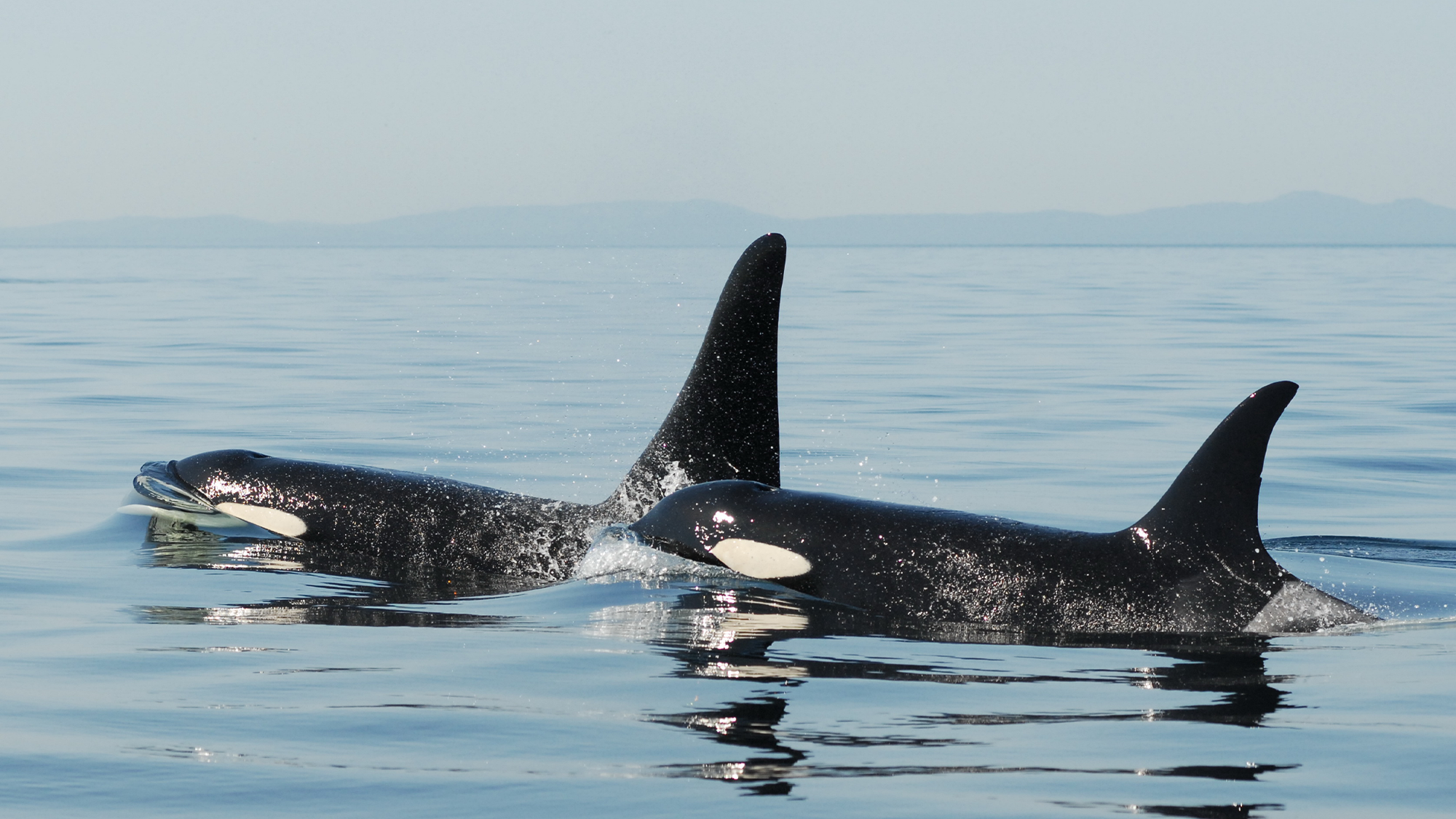

Orca whales are among the world’s most recognizable whales, with their round Oreo-cookie colored bodies, acrobatics, and apex ocean predator status. Many populations of orcas–aka killer whales–are also in trouble, and not just due to decades of captivity.
The unique and endangered Southern Resident killer whales (SRKW) that live off of the northwest coast of North America specialize in eating Chinook salmon, a particularly large, fatty, and nutritious Pacific salmon. The whales have become endangered for multiple reasons including reduced salmon availability, chemical pollution, and noise pollution.
[Related: A baby orca sparks a glimmer of hope for an endangered group of whales.]
“They’re starving all the time because there’s just not enough fish out there,” Deborah Giles, the Science and Research Director for the Washington-based group Wild Orca, told PopSci last year.
Only 73 of these orca whales are left, a critically low number since they do not interbreed with other orca populations.

While their tight knit familiar bonds are remarkable–they’re even known to instinctually push around deceased calves–their parenting tactics may also be hurting them, particularly when it comes to raising male offspring. A study published February 8 in the journal Current Biology found that raising sons is so exhausting that it leaves whale mothers less likely to produce more offspring.
The study found that each living son cut an orca mother’s annual likelihood of producing a calf that survives to one year old in half. This effect continued as the sons grew older, which suggests that the sons are a lifelong burden on their mothers.
“Our previous research has shown that sons have a higher chance of survival if their mother is around,” said Michael Weiss, a co-author from the Centre for Research in Animal Behaviour at the University of Exeter, in a statement. “In this study, we wanted to find out if this help comes at a price.”
Orca mothers are known from previous research to provide their female offspring with less support than their male offspring, especially after daughters reach adulthood.
The team looked at data from 1982 to 2021 on 40 SRKW females. Male and female SRKWs stay in the group they were born into, with each led by an experienced female matriarch. They come from one of three pods–J Pod, K Pod, and L Pod. One headline grabbing matriarch was Granny (officially named J2), a possibly 103 year-old orca who died in 2016.
While feeding, mothers commonly bite salmon in two pieces, eating one half themselves and giving the other half to their sons. While they also feed young daughters, this tends to stop when they reach reproductive age in their early teens, but continues for adult males.
[Related: Granny, the world’s oldest known orca, is likely dead.]
According to the team, this strategy of sacrificing their future reproduction to keep their sons alive found in this study is highly unusual in nature and may even be unique to this population and species.
It’s possible that mother’s gain an “indirect fitness” benefit where helping their sons survive and reproduce improves the changes of genes passing along to future generations.
This strategy has been effective in the past, as mothers pouring effort into their sons’ survival would be beneficial since male offspring can mate with multiple females and create many grand offspring. But this strategy may cause problems for the future viability of endangered whales.
“For this population that’s living on a knife’s edge, the potential for population recovery is going to be limited by the number of females and those females’ reproductive output,” said co-author Darren Croft, an animal behavior specialist from the University of Exeter, in a statement. “A strategy of females reducing reproduction to increase the survival of male offspring may therefore have negative impacts on this population’s recovery.”
